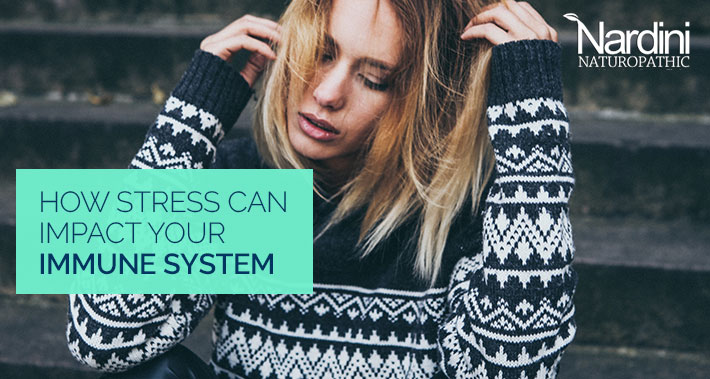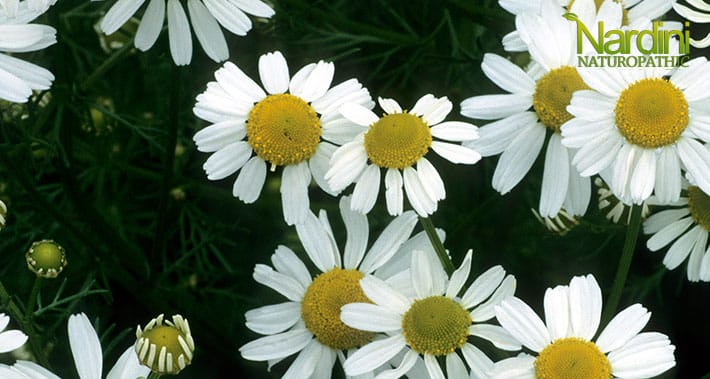Everyone feels stress sometimes, and in the current climate with fears related to COVID-19, stress levels are at an all-time high.
Some people deal with stress at an individual level better than others, and we can all benefit from natural stress management techniques to help keep our anxiety under control.
As a naturopathic doctor in Toronto, I do not provide treatment for COVID-19 – at the time of this writing, there is no known cure or treatment for it.
However, it is known that stress levels can contribute to the health of your immune system.
Let’s take a look at what stress is, the impacts it can have on your body, and some ways to manage it.
From A Biological Perspective, What Is Stress?
When we face stress, our body’s stress response is activated, setting off a series of events.
When the body recognizes a stressor, it triggers the pituitary gland to send a signal to the adrenal glands to secrete cortisol.
Cortisol helps your body get into “fight or flight” mode, which in some situations can be a good thing, especially if you are facing immediate danger.
However once that danger has passed, cortisol levels should decrease.
If cortisol levels remain chronically high, because of chronic stress for example, it can lead to health issues.
In the next section, we will have a closer look at some of these issues and how they impact the immune system.
How Does Stress Impact Your Immune System?
When the body is under stress, the immune system’s ability to defend against disease-causing pathogens is reduced, leaving us more prone to infection.
Additionally, the presence of stress hormones such as cortisol can suppress the number of white blood cells in the immune system.
An indirect effect of stress on the immune system occurs when individuals under high stress turn to unhealthy coping mechanisms such as smoking, drugs, or alcohol.
The impacts of having high levels of cortisol can include health issues such as:
- Depression
- Heart disease
- Digestive issues
- Trouble sleeping
- Weight gain
- Hypertension (high blood pressure)
Natural Solutions To Manage Your Stress
If you are experiencing higher than average stress levels, there are a number of natural solutions you can reach for to help get things under control.
Let’s have a closer look at some of these.
1. Vitamin A
Vitamin A has antioxidant properties and has been shown to aid in the management of stress and anxiety.
A 2012 study in the Indian Journal of Psychiatry looked at the role of antioxidants in generalized anxiety and depression1.
The study looked at levels of vitamin A (as well as C and E) in individuals with anxiety and depression.
It also found that supplementation helped to significantly reduce levels of anxiety in study participants.
If you wish to get vitamin A through diet, good sources included liver, fish (tuna, salmon, and mackerel), spinach, and dairy products.
2. Vitamin C
Vitamin C is an antioxidant which can help to prevent oxidative damage to the nervous system.
This sort of damage to the nervous system can trigger feelings of stress and anxiety.
A 2015 study in the Pakistan Journal of Biological Sciences looked at anxiety levels in high school students2.
This study found that supplementation with vitamin C reduced anxiety levels when compared to the placebo control group.
The study notes that vitamin C should be used in conjunction with other methods such as medical and psychological treatments for anxiety.
3. Vitamin E
Another antioxidant which the body uses up more quickly when you’re under stress is vitamin E.
The same study noted above from the Indian Journal of Psychiatry also looked at the role of vitamin E in relation to generalized anxiety and depression1.
As with vitamins A and C, the study found supplementation with vitamin E to be an effective way to manage anxiety.
Dietary sources of vitamin E include sunflower seeds, almonds, hazelnuts, avocado, Atlantic salmon, and rainbow trout.
4. L-Theanine
L-theanine is an amino acid, primarily found in green and black tea.
It is believed to affect the levels of chemicals in the brain which control mood and sleep, such as dopamine and serotonin.
A 2017 study in Psychopharmacology studied the effects of L-theanine on anxiety in rats3.
This study found that L-theanine had anxiety-reducing effects, however, more studies are needed to fully understand how this works.
5. Chamomile
Chamomile is a daisy-like flower which is widely recognized as having a calming effect.
In addition to relieving anxiety, it can help with digestive issues and aids in reducing inflammation.
The most common way to consume chamomile is sipping on chamomile tea.
It is generally considered safe, however it should be avoided by people who are allergic to the daisy family, on anticoagulant drugs, or about to have surgery.
6. Lavender
Lavender is widely known for its soft purple colour and its soothing scent.
But did you know it actually has sedative effects on the nervous system, which may be useful in reducing anxiety and depression?
A review article in Evidence-Based Complementary and Alternative Medicine looked at current research regarding lavender’s effects on the nervous system4.
Lavender oil was shown to have anxiety-reducing effects and was more effective than a placebo when used with patients with an anxiety disorder.
It was also shown to improve sleep quality, relieve restlessness, and generally improve overall well-being and quality of life.
1. https://www.ncbi.nlm.nih.gov/pmc/articles/PMC3512361
2. https://www.ncbi.nlm.nih.gov/pubmed/26353411
3. https://link.springer.com/article/10.1007/s00213-017-4743-1
4. https://www.hindawi.com/journals/ecam/2013/681304/
Book An Appointment With Nardini Naturopathic
Are you or a loved one struggling with higher-than-usual levels of anxiety due to the COVID-19 pandemic the whole world is facing right now?
Maybe you are finding it difficult not being able to visit your friends and family during this unprecedented crisis.
There are currently no known treatments for COVID-19 (naturopathic or otherwise).
However, naturopathic medicine can help you manage the stress you might be feeling right now.
Contact me, Dr. Pat Nardini, for more information today.
If you have questions about naturopathic medicine, or you’d like to take your first step into the world of naturopathy, contact us at Nardini Naturopathic, and let’s book an appointment.
Yours in health,
Dr. Pat Nardini, Naturopathic Doctor
320 Danforth Ave suite 206,
Toronto, ON, M4K 1N8
-https://g.page/NardiniNaturopathicDanforth
Dr. Pat Nardini, ND is a licensed doctor of naturopathic medicine in Toronto, Ontario. He offers science based natural health solutions with a special focus on thyroid conditions.


